Supporters like you
Read about supporters who are helping girls reach their full potential through Plan.
Eileen Fischer
“Giving is my way of saying to myself, ‘You can make this world a better place.'”
When Eileen Fischer first decided to become a Plan sponsor, she was only 24 years old, struggling to make ends meet.
“I barely earned enough money to pay the rent, buy food and pay my student loans,” she remembers. “But squeezing out about a dollar a day seemed possible.”
Read more of her story
That’s because the importance of giving back had been instilled in Eileen at a very early age. Growing up, she saw the way her parents gave to their church and other charities, even when they did not have much to spare. As she grew older and traveled to countries where she saw extreme poverty up close, Eileen became even more determined to share what she could with those who need it most.
“I realized that these are people just like me, except they were born into poverty,” she said. “They are just as smart, as talented, as motivated as I am, but with fewer opportunities. All their energy goes to survival.”
Over the years, Eileen has sponsored children from around the globe and donated to projects like child trafficking prevention, education scholarships and microfinance. But these days, there is one issue that is closest to her heart.
“My current gifts are focused on girls,” she says. “I know boys in poverty need help also, but girls have fewer opportunities to get an education and change their lives. I strongly believe that the only way we will solve world problems is to empower youth everywhere with education and opportunity.”
Eileen believes that when everyone does their part, big or small, the collective impact will be tremendous, and this gives her hope for the future.
“There are so many problems in the world, it is easy to feel helpless,” she says. “Giving is my way of saying to myself, ‘You can make this world a better place.'”
And she isn’t just making a difference today. Eileen plans to leave behind a legacy of hope for future generations by including Plan in her will.
“I initially felt an obligation to leave my assets to my nieces and nephews,” she explains. “And they will receive a small ‘I love you’ gift. But they had all the advantages of a loving family and access to excellent education. They have the tools to be productive citizens and live happy lives. I want other children to have that opportunity. This is a wonderful way to leave a bit of goodness in the world when I depart.”
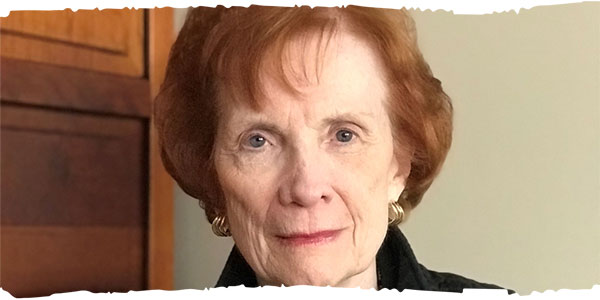
Roberta FitzGerald
“I saw the impact I was making over the years.”
Read more of her story
When Roberta FitzGerald stepped off the plane in the Philippines more than 30 years ago, she felt someone tug on her skirt. She looked down and heard a little boy saying, “Mommy, mommy.” Poverty in the country at that time was extreme and widespread.
“I saw that the need was so great,” Roberta remembers.
Over the course of many international trips, that moment stuck with her. And when a friend mentioned sponsoring a child for an organization called Plan, she was interested in learning more. For Christmas of 1986, she made the decision to become a child sponsor. Her first child lived in the Philippines.
Now, Roberta sponsors two children: Jhonny, 3, from Brazil, and Ngoc, 11, from Vietnam. She’s made a difference in many children’s lives over the years. She remembers another child in the Philippines whose father was a seasonal fisherman. The job wasn’t enough to keep the family afloat. So, the child’s mother got involved in a small cooperative store organized by Plan, and the family became self-sufficient year-round.
Another child, Lap, lived in a modest wooden house when Roberta started sponsoring. But, over time, Plan helped the community and the child’s family learn new skills and flourish. Roberta watched their home transform in photos, from wood to much more stable, safe cinder blocks. Best of all, Lap got a bookcase and a small desk so he could do his homework.
“I saw the impact I was making over the years,” Roberta says.
Because Roberta has endowed one of her child sponsorships, she will provide access to life-changing sponsorship programs for generations of children even after the end of her lifetime. An endowed sponsorship pays the annual sponsorship fees for one child in perpetuity, and as one child graduates from the program another one can be added to take his or her place. In this way Roberta’s impact will continue, child after child, for years to come.
Roberta says that with Plan, you can be confident your contribution is going exactly where you intend.
“You see the progress and the accomplishments, how these families and communities change for the better,” she says. “It gives you great satisfaction to be part of the process.”

“You see the progress and the accomplishments, how these families and communities change for the better. It gives you great satisfaction to be part of the process.”
ROBERTA FITZGERALD
Arlene Jacquette
How I’m honoring my husband’s memory with Plan
Read more of her story
Donors come to Plan International USA in many ways. Maybe you decided to sponsor a child when you had a child. Maybe you served in the Peace Corps and have an affinity for a particular country. Or maybe you want to help children go to school or drink clean water.
For Arlene Jacquette, the path to Plan included the U.S. Foreign Service, a group of women from Nigeria and her beloved late husband, Eugene Chiavaroli.
In 1979, Arlene took a trip to the USSR.
“We went to some pretty out-of-the-way places,” she says. “I was totally fascinated by our interactions with the people.”
Then a professor at Providence College, Arlene was already considering a career change. So when someone on the trip recommended she take the Foreign Service exam, she was intrigued. The exam led to a job offer, and Arlene spent the next 20 years working at embassies around the world. She lived in seven countries over two decades, including Pakistan, Algeria, Mali, Zimbabwe, Nigeria, Ethiopia and Greece.
It was in Mali that she met Gene, the man who would later become her husband. Arlene was working as the U.S. Embassy’s public affairs officer, while Gene was the head of the USAID mission there. Six years later, they married and moved to Nigeria.
Arlene remembers one night when Gene held a big reception for female health practitioners at their home in Lagos. The event was put together by an organization called the Centre for Development and Population Activities, or CEDPA.
Arlene was coming back from a trip to northern Nigeria and got held up in traffic. But Gene didn’t sweat it.
“He was actually a wonderful cook and a great entertainer, so he really didn’t need me there,” Arlene says.
When she walked in, suitcase in hand, the Nigerian women marveled at the scene: a man cooking and hosting guests while a woman arrives home from work.
“The women were just so charmed by that,” Arlene says. “That he didn’t have to rely on me, and I could do my own thing.”
In 1994, Gene decided to retire and, when Arlene’s tour was up, they moved to Ethiopia for her next assignment. And even though he was retired, Gene stayed active within the nonprofit community and kept working.
“He would always be doing something,” Arlene says. “He was a very energetic guy. He really didn’t want to just be twiddling his thumbs at home and walking the dogs.”
Sadly, Gene died unexpectedly at the age of 60, in Ethiopia. Arlene completed one more assignment for the Foreign Service, in Greece, before retiring and returning home to the U.S.
“It was such a loss,” she says. “I just felt, because he was cut off early in life, and because of what he did, that it would really honor him to have something in his name. That there be something there to memorialize him.”
So, Arlene remembered the Nigerian health practitioners they’d hosted at their home and recalled other interactions that she and Gene both had professionally with CEDPA. When she went to write her will, she created a scholarship program to fund women’s leadership activities. In 2012, CEDPA merged with Plan International USA, becoming an even stronger voice for women and girls around the world.
“So, it was a natural step for me to transfer my legacy gift to Plan,” Arlene says.
Arlene’s life is still as busy as ever; she’s taught more than 20 literature courses in a lifelong learning program at the local university. A few years ago, she had the chance to meet a Kenyan woman in Washington, D.C. who had just finished a Plan workshop — just the kind of program that Arlene’s bequest will support, strengthening girls and young women’s skills in personal leadership, project management, advocacy, finance, public speaking and more.
“She was really energized,” Arlene says. “Talking to her, I knew that my support of Plan would make a difference in real people’s lives.”
Gene’s work on the continent of Africa may have been cut short, but thanks to Arlene, his legacy will echo on through generations to come.
“I am confident that my husband’s legacy will not only continue, but also be enhanced by Plan’s commitment to promoting African women and providing many opportunities for their development,” Arlene says.
You can continue to help girls and their communities by giving through your will. For more information, please visit our page on giving through your estate, or reach out to Jennifer Winnett Denniston, Director of Principal and Planned Giving, at 401.562.8454 or jennifer.denniston@planusa.org.
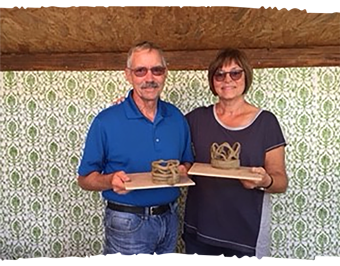
Dr. Jean Johnson and Dr. Greg Pawlson
“What is it that we want to create?”
Read more of their story
Jean and Greg know their stuff. When they decided they wanted to donate to an organization that helps children, they did their homework. They looked at budgets, checked charity watchdog reviews and researched the most impactful forms of international community development. And just like you, at the end of the day, they chose Plan.
They started with child sponsorship. And like you, over the years, they watched the children in the photographs change as they grew up; they got taller, more confident. And they sent letters.
Greg remembers one letter that came with a drawing of a family and their house.
“It looked like it could have come from one of our grandkids,” he says with a chuckle. Maybe you’ve thought that, too.
They also enjoyed reading about the projects they were making a reality in their sponsored children’s communities. Schools built safe bathrooms for girls and other students, and entire villages gained access to water.
Children became visible in the eyes of their government when they received birth certificates, helping them access critical services like health care and education. And girls who were victims of sexual assault were empowered by child protection institutions offering legal, psychological and medical services.
Jean and Greg were restoring hope — just like you.
You know that feeling: the real satisfaction you get when you help someone. Even if that person is halfway across the world, the feeling is the same.
But Jean and Greg didn’t stop there. They kept reading and researching and thinking about the best way to make an impact. And as professors, they thought about grants they’d received, looking to create real social change in just a few years.
“Both my husband and I have been recipients of grants from foundations over our career to do certain projects,” Jean said. “And, most foundations do one, two, and three year grants, and expect social change in three years. Well, that doesn’t happen. It’s really important to have people think long term, ‘What is it, ultimately, that we want to create?’”
That’s why they made the decision to invest in endowed sponsorship. Through this simple yet powerful program, Jean and Greg’s sponsorship support of children and families will continue for generations to come, even after they’re gone. In this way, they’re cementing their impact on the world’s children.
Today, Jean and Greg feel their giving is more important than ever. They have three endowed sponsorships: Aissato, a 3-year-old girl in Guinea Bissau; Safaa, an 8-year-old girl in Sudan; and Digiti, an 11-year-old girl in Ethiopia.
Jean and Greg don’t regret their decision to invest in our world’s future — and neither will you.

“I am confident that my husband’s legacy will not only continue, but also be enhanced by Plan’s commitment to promoting African women and providing many opportunities for their development.”
ARLENE JACQUETTE

Conni Otradovec
“I’m a richer person for it.”
Read more of her story
One Christmas, Conni got a unique gift from a friend: the chance to be a pen pal with a child halfway around the world.
“He knew about my interest in foreign cultures, and he thought a child sponsorship would be something I’d enjoy,” Conni says.
And boy, was he right! After the first year, Conni took over the sponsorship herself. Now, more than three decades later, Conni has sponsored children from countries including the Philippines, Honduras and Guinea Bissau.
“It has been an amazing experience,” Conni says. “I’ve sponsored more than 10 children, some for very short periods of time, and some long enough to watch them grow and graduate.”
So when Conni began thinking about her legacy, she decided to name Plan as a beneficiary of her IRA.
“It’s easy!” Conni says. “Once the IRA beneficiary designations are set up, you never need to think about it. If an emergency should arise, you still have full access to the money in the account.”
It’s a gift as simple as filling out a form — with a meaningful impact.
“Bottom line, if I can provide some money to help support those who are struggling, I’m a richer person for it,” Conni says.
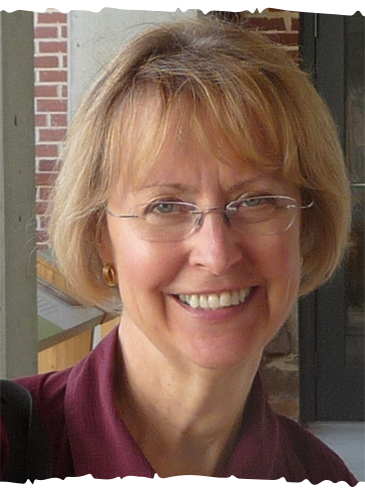
Rev. Dr. Jane Tomaine
“We have the joy of impacting the lives of the children of this world.”
Read more of her story
What change would you like to see happen in our world today? After decades of giving to Plan, Jane has a clear picture of what she hopes her support will create.
“In my own mind’s eye, I see girls from different countries walking to school in decent clothing, learning, and growing as they receive an education, taking part in school and community activities as leaders, making decisions that affect their lives as they become young women, and embracing the self-esteem needed to live with joy and hope.”
As an Episcopal priest, Jane connects her philanthropy with her faith. She and her husband John wanted to help children who faced challenges they did not encounter, like poverty, hunger and lack of education. Jane is especially passionate about supporting the girls.
“I love supporting a program that is exclusively for girls,” she said. “Whatever we can do to eliminate gender bias against girls must be done, so that they can have a full and equal opportunity to thrive and become the people they are meant to be, fully using the gifts given to them by God and contributing with joy to their families, communities, and nations.”
So, when Jane inherited some stock after her mother’s passing, she knew what she wanted to do.
“I have always felt that this gift is there to be given away,” she says. “And so, with the support of my husband, and through the ongoing donation of stock, we have the joy of impacting the lives of the children of this world.”


Carol Rees and John Foley
“There isn’t a better use of abundance than sharing it.”
Read more of their story
Carol Rees started sponsoring at the early age of 24. As she explains, she was working in Los Angeles as a stuntwoman and, she says with a laugh, “possibly I wanted to be sure I left a positive impact on the world in case a stunt didn’t end up going the way we planned!” Carol went on to spend 25 years as a freelance producer in fashion advertising and continued sponsoring children. She says, “I really enjoy when they make it all the way through the program and age-out. It makes me feel like Plan and I together were able to give this child, living in conditions that most of us can’t really understand, the best chance at a happy and prosperous future.”
In 2007 Carol decided to create an Endowed Sponsorship to ensure that her sponsorship would continue beyond her own lifetime. At that point in her life she felt she was financially able to invest more into her passion for helping children. She recalls thinking, “What could be a better use of my money than giving the opportunity for a better life to a child? I mean really — there isn’t a better use of abundance than sharing it.”
When Carol married John Foley, a former lead solo pilot with the Navy’s Blue Angels who is now an inspirational speaker for corporate audiences, he joined in her charitable efforts. With no children of their own, Carol and John feel it’s important to be involved in helping children in need.
In 2016 Carol and John committed to sponsoring a child in every country where Plan has a program — 47 sponsorships! As Carol explains: “We believe in the power of education to lift children, families, and communities out of the cycle of poverty. … But no one can study without first being fed, clothed, and have a roof over their heads. We like that Plan works to cover all of these bases. The impact we can make on a child’s life will, we believe, have an enormous ripple, like a pebble dropped into a pool, whereby their improved health and education will have a positive impact on every person they come into contact with throughout their life.” For Carol and John, “That’s what we call a return on investment!”
“The impact we can make on a child’s life will, we believe, have an enormous ripple, like a pebble dropped into a pool, whereby their improved health and education will have a positive impact on every person they come into contact with throughout their life.”
CAROL REES AND JOHN FOLEY
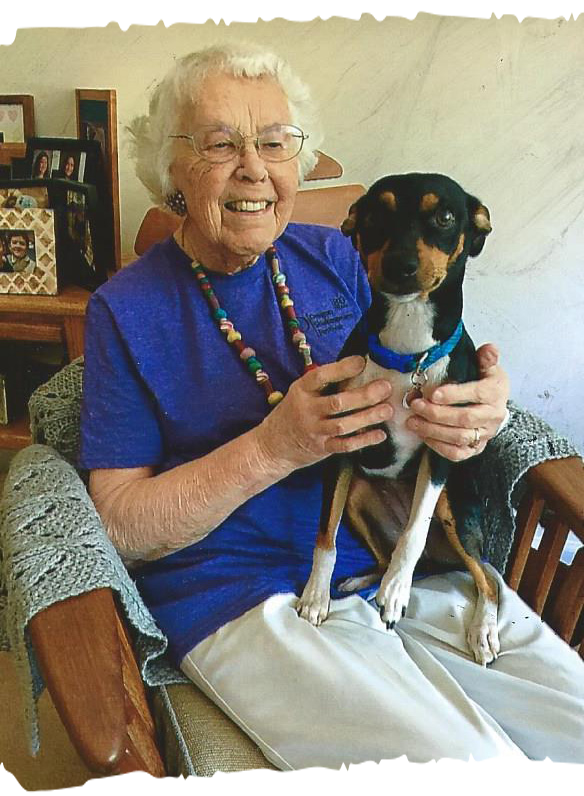
Helen Mendel
“A way to keep doing something good.”
Read more of her story
Helen Mendel and her late husband John have been Plan sponsors for well over 50 years. So the decision to create three endowed sponsorships was an easy one. As Helen explained, “It’s a way to keep doing something good even after I’m gone.”
Helen recalls first learning of Plan’s work from another couple who encouraged her and John to sponsor a child. Their experience with that first child, a boy from Italy, led to sponsorships in countries all over the world, including El Salvador, Guatemala, Vietnam, Maylaysia and three children from the same family in Bolivia.
One of the things Helen has enjoyed most about being a sponsor is the chance to correspond with each child. A lifelong musician herself, she remembers that one child was also very interested in music and they could talk about that; another was obviously very bright and wrote to her in what she recalls as very good English. She has already arranged with her daughter to continue corresponding with children receiving the endowed sponsorships when she is no longer able to do so.
In addition to being a longtime Plan donor, Helen is also a vocal advocate for the sponsorship program. Her enthusiastic description of the benefits of sponsorship led to her current caregiver, a woman from Honduras, sponsoring a Honduran girl.
Helen feels strongly that she has been fortunate in life and wants to share that good fortune with others. In addition to sponsorships, she has donated to Plan relief efforts for major disasters, such as the Nepal earthquake and the drought in Ethopia. Of all of her gifts to Plan she says, “It feels good to know that I am helping in a small way to make somebody’s life better.”
When asked what she would tell someone else who was considering donating, Helen said, “I always want to be sure I know that the money I’m giving goes exactly where I want it to go, directly to helping people. With Plan that’s always the case.”
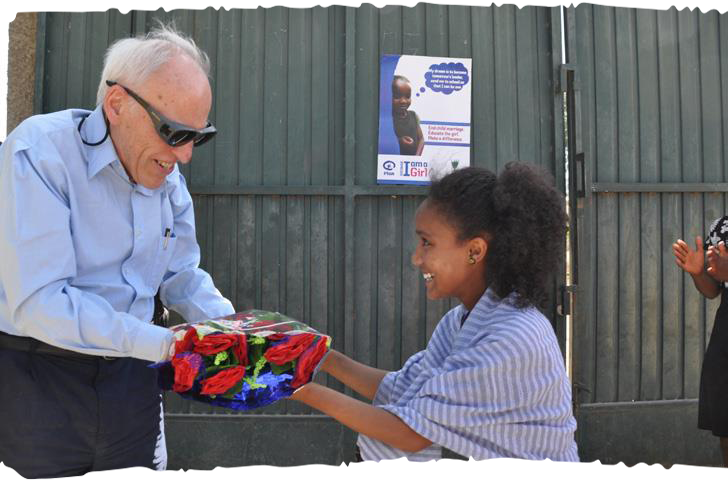
John Kulczycki and Regina Bowgierd
Giving Ethiopian girls what they need to succeed
Read more of their story
For John Kulczycki (pronounced kul-CHIT-ski) and his wife, Regina Bowgierd, who is from Poland, the decision to fund a new water system for their sponsored child’s school was a natural outgrowth of John’s strong connection to Ethiopia, where he spent two years as a Peace Corps volunteer, and the couple’s belief in the importance of girls’ education for sustained development and social justice.
John and Regina have been Plan sponsors since 1974. After returning to Ethiopia with two other former Peace Corps volunteers, John, professor emeritus of history at the University of Illinois Chicago, and Regina, a retired psychologist, focused on supporting projects in that country.
John says, “One of the things I learned [from other projects] is to ask the girls directly what do they need. When I asked my sponsored child what do the girls at her school need, this is how the water and girls’ toilet project began.”
Semira, John’s sponsored child, reported that there were not sufficient toilet facilities at her school. John explained that many girls drop out of school when they reach puberty.
“They miss school when they have their periods, because most schools in the countryside have no latrines, and they become embarrassed,” he said.
John worked with Plan personnel on the ground in Ethiopia to investigate Semira’s situation. They found that the entire water system at the school had been compromised and was not functioning as it should have been. The toilets at the school were overworked and were failing because they did not have enough facilities to support the number of students at the school. They also did not have sufficient hand-washing stations.
John decided to use a portion of his IRA to fund a project that would build a new water supply for the school, new hand-washing stations and new toilet facilities. He was instrumental in the project design process, reviewing plans and proposals each step of the way. Because he utilized his IRA to make his gift through a charitable IRA rollover, John was able to satisfy a portion of his required minimum distribution and reduce the taxes he owed, which meant that more of his gift went directly to work for the girls in Ethiopia.
John says that he learned much about the formidable obstacles to girls’ education during a visit to Plan’s Girls Empowerment Through Education program in Ethiopia. Yet, he says, “I remain convinced of its importance for Ethiopian and other societies. Plan International and other projects demonstrate that progress is possible.”

“I always want to be sure I know that the money I’m giving goes exactly where I want it to go, directly to helping people. With Plan that’s always the case.”
HELEN MENDEL
Join a giving society
Together we can do so much. Join a community of people who share your passion for girls’ rights by becoming a member of one of our giving clubs.
